Not every culinary school student dreams of donning a toque and stepping into the role of a commercial chef. If you’re interested in food but don’t have your sights set on becoming an executive chef, you have plenty of other options to choose from. From personal chefs to food photographers to restaurant designers and more, there are dozens of exciting careers in the food world.
A degree or diploma from Auguste Escoffier School of Culinary Arts can prepare you for many alternative culinary careers. With foundations in French culinary techniques and an industry-focused business curriculum, Escoffier aims to prepare students for a future in food, whether that’s in or out of the kitchen.
Here are five alternative culinary careers that you may not have thought of—and can start with an education at culinary school.
1. Specialty Food Buyer
Do you have twenty bottles of olive oil at home because you know that each olive harvest leads to different flavor profiles? Can you smell a batch of coffee beans and tell that a few burnt beans snuck their way in? Then a specialty food buyer could be a career for you.
Specialty food buyers are invaluable to food preparers like restaurants and catering companies as well as resellers like grocery stores and wholesale companies. They’re the people who find high-quality and/or niche products such as cheese, coffee, and small batch hot sauce, and then get these products onto the market.

But don’t just think you’ll be spending your time sampling fine foods—there’s a lot more to this job than simply fulfilling orders and conducting tastings. Specialty buyers need an extensive knowledge of flavor profiles, consumer demand, and food quality standards. Plus, they need financial skills to stay within a customer’s budget while also making a profit themselves. They also have to build relationships with both clients and vendors, and be adept negotiators to keep both sides of the transaction happy.
Food buyers are also responsible for taking a long-term view of the supply chain. A drought one year could make the following year’s crop of specialty spices go up in price. A great specialty buyer should know what’s coming and help keep their clients informed.
If you’d like to get started as a specialty food buyer, an entry-level role with a distributor or specialty grocery store could be a great way to start learning about products and supply chain.
2. Restaurant & Hospitality Publicist
There’s a lot going on behind the scenes of restaurants, and one of those things is public relations. Restaurant publicists help spread the word about new restaurants and other hospitality businesses. They secure placement for restaurants in local and national media, get them invited to food festivals, and improve brand visibility. Some also manage restaurant social media accounts.
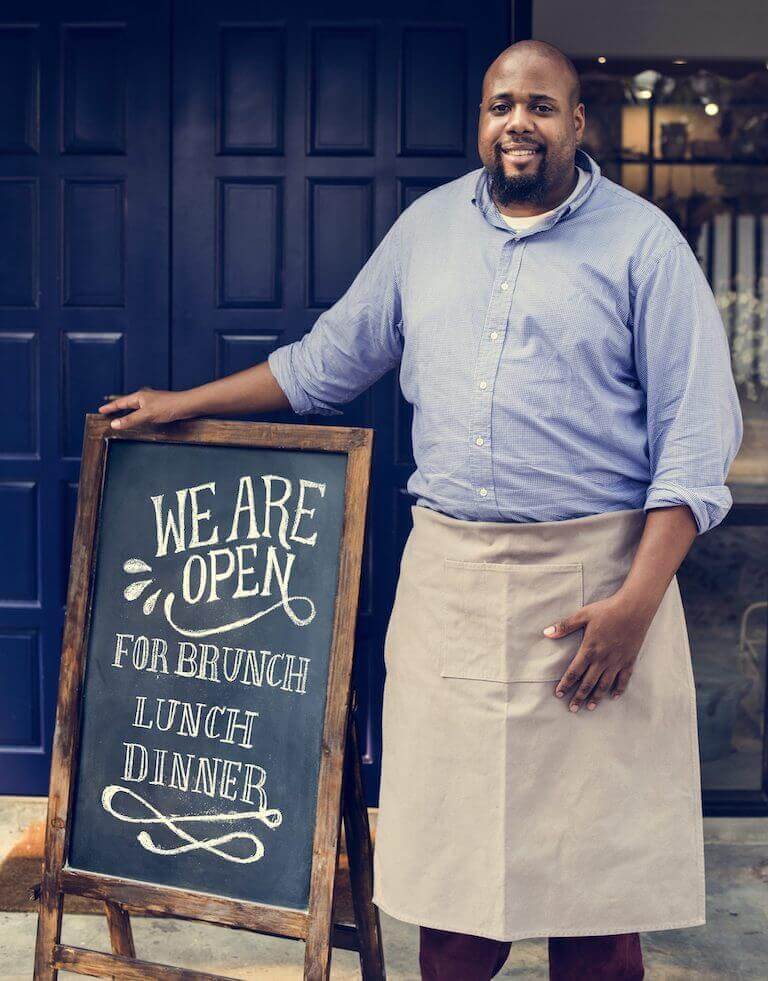
Publicists often get invited to all the new restaurant openings and events, so these professionals eat well!
To break into this field, publicists should understand culinary techniques and preparation methods so they can speak authoritatively about their clients. Some marketing education will also help, but publicists primarily learn on the job. Many PR agencies take on interns, which is a great way to gain experience!
3. Ghost Restaurant Chef/Owner
Opening a traditional restaurant has many rewards, but it also comes with financial risk. Some people have been dreaming up a restaurant brand and honing their recipes for years, but starting a brick-and-mortar restaurant is out of reach due to financial or personal constraints. That’s where ghost restaurants can come in.
Ghost restaurants allow chefs to start their brands without going all in on their own kitchen and dining spaces. Also called virtual or cloud restaurants, these establishments don’t have a dining room or any guest-facing spaces. Instead, they only interact with customers online, fulfilling orders by delivery. These virtual restaurants operate out of leased commercial spaces, which makes them much more affordable to operate.
Partnerships with delivery services like Uber Eats, GrubHub, and DoorDash make the deliveries, so you can focus on the food. DoorDash is even rolling out its own ghost kitchen spaces to streamline the process.
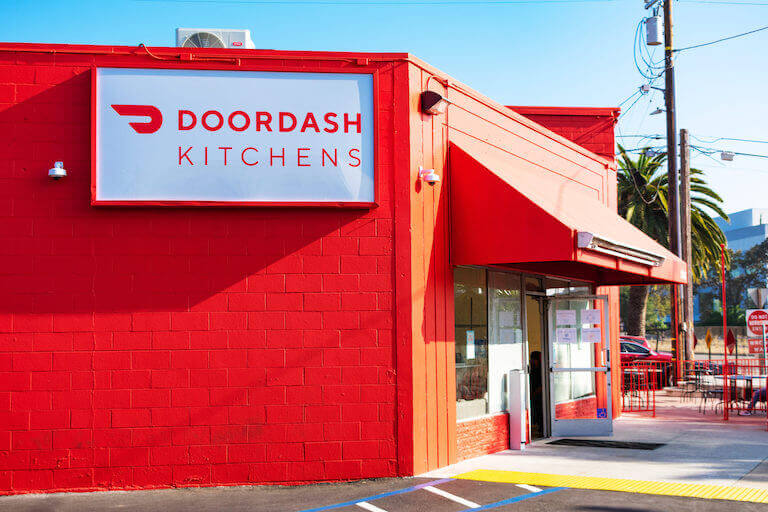
To get started with a ghost restaurant, begin with a solid business plan. And before you get too far into the process, confirm that there is commercial kitchen space for rent in your area.
4. Food Writer
There’s the ability to identify good food…and then there’s knowing how to describe it. If you can write in a way that allows readers to taste a restaurant’s new dishes without taking a bite, or journey through a cake designer’s day from thousands of miles away, you may have what it takes to become a food writer.
A culinary school education could give you the language you need to describe the taste, aroma, and mouthfeel of ingredients and completed dishes. Plus, knowing cooking techniques and cuisines from around the world can help you to speak knowledgeably about food. These topics are all explored in Escoffier’s culinary programs!
If you decide to become a food writer, there are many different career options within this field. You could start a blog and write reviews of the restaurants in your town, or even share your own recipes. This may take some time to pay off, but many people have turned blogs into lucrative careers.

You could also pitch stories to print or online magazines. Or you could work with chefs to develop cookbooks.
There are many ways to get started as a food writer. You could start a food blog today, if you wish. Or if you think you need some additional writing skills to supplement your culinary school education, you could enroll in a writing or journalism course.
And if you want to create content, but writing isn’t your thing, consider exploring a career as a food photographer or food stylist.
5. Artisan Food Producer
Not all people who make food create dishes to order. Many culinarians instead devote their talents to making prepared foods to sell on a retail or wholesale basis.
Salamis and prosciuttos, jams, cheeses, honey, pestos, olive oils, and breads are popular artisanal foods. To meet high-quality control standards and stay close to the finished product, these items are often produced in small batches.
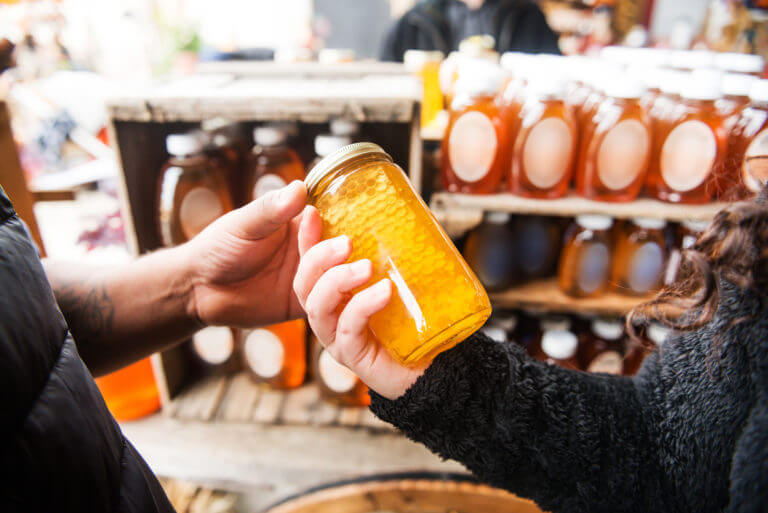
This type of business gives you the opportunity to work with local suppliers and farmers for raw materials. In a time when people are more interested in shopping small and supporting local businesses, an artisanal food business could be a fun and fulfilling career.
Before you dive in head first, try working for an established local food artisan to learn about the business.
Escoffier Culinary Arts students can get a look at the world of the artisan food producer in the Farm to Table® Experience during their studies. Centered on the link between farmers, artisans, and the greater local food community, this course highlights the advantages of buying local and making sustainable food choices.
The Essential Culinary Career Survey
The Essential Culinary Career Survey
What's your ideal culinary career: Fine dining? Your own restaurant? Pastry? Get our self-evaluation survey to find out!
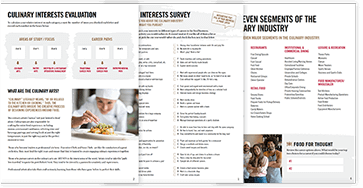
We’ve compiled a checklist of all of the essential questions into one handy guide: career options, culinary interest surveys, educational opportunities, and more.
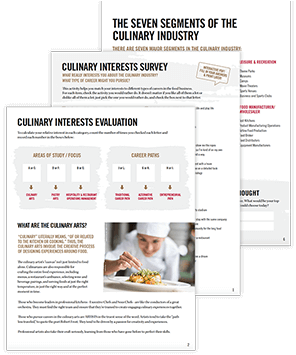

Start with an Education to Lay a Solid Foundation
We’ve barely skimmed the surface of what’s possible with a culinary arts degree or diploma. Once you have the knowledge foundation from culinary school, there is a wide world of career possibilities.
Escoffier students can receive practical training in food and cooking. But they also may take business courses, which can help in any of these alternative culinary careers.
Whether you’re looking for culinary school, pastry school, hospitality school, plant-based culinary school, or opportunities in food entrepreneurship, holistic nutrition and wellness, or Hospitality and Restaurant Operations Management, Escoffier might be the ideal place for you to start your new venture!
To continue exploring culinary and pastry careers, try these articles next:
- What Can You Learn in Culinary School?
- How To Start Your Own Food Truck
- How to Get a Job in the Hospitality Industry
This article was originally published on August 15, 2019, and has since been updated.

